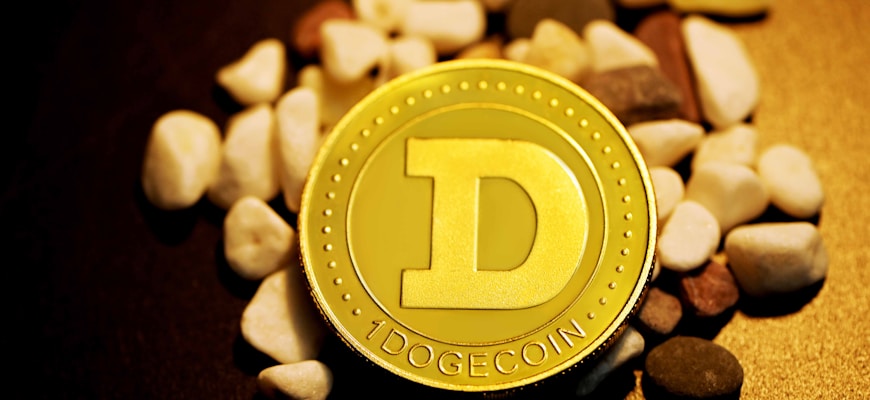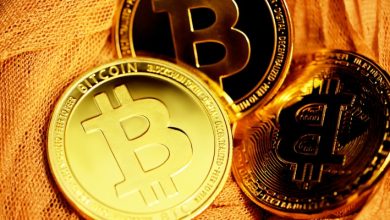DeFi Explosion: Record-Breaking Growth in Decentralized Finance

- Understanding the DeFi Explosion: A Comprehensive Overview
- Unprecedented Growth in Decentralized Finance: What You Need to Know
- Breaking Down the Record-Breaking Growth of DeFi
- The Rise of Decentralized Finance: A Game-Changer in the Financial Industry
- Exploring the Phenomenon of DeFi: Trends and Predictions
- How DeFi is Revolutionizing the Traditional Finance Sector
Understanding the DeFi Explosion: A Comprehensive Overview
The explosive growth of DeFi, or decentralized finance, has been a remarkable phenomenon in the financial world. DeFi refers to the use of blockchain technology and smart contracts to provide financial services without the need for traditional intermediaries such as banks or brokerages. This innovative approach has gained significant traction in recent years, with a surge in the number of DeFi projects and the total value locked in these platforms.
One of the key drivers behind the DeFi explosion is the growing interest in decentralized applications (DApps) that offer a wide range of financial services, including lending, borrowing, trading, and asset management. These DApps operate on open-source protocols, allowing users to interact directly with the platform and execute transactions without relying on centralized authorities.
The decentralized nature of DeFi platforms offers several advantages over traditional finance, including greater accessibility, transparency, and security. Users can access DeFi services from anywhere in the world, without the need for a bank account or other traditional financial infrastructure. Additionally, transactions on DeFi platforms are recorded on the blockchain, providing an immutable and transparent record of all activities.
As a result of these benefits, the DeFi ecosystem has experienced exponential growth in recent years, with an increasing number of users and capital flowing into these platforms. The total value locked in DeFi protocols has reached record levels, highlighting the growing interest and adoption of decentralized finance.
Overall, the DeFi explosion represents a paradigm shift in the financial industry, challenging the dominance of traditional financial institutions and paving the way for a more inclusive and decentralized financial system. By leveraging blockchain technology and smart contracts, DeFi has the potential to revolutionize the way we access and interact with financial services, creating new opportunities for innovation and financial inclusion.
Unprecedented Growth in Decentralized Finance: What You Need to Know
The decentralized finance (DeFi) sector has experienced remarkable growth in recent years, attracting a surge of interest from investors and users alike. This unprecedented expansion has transformed the traditional financial landscape, offering new opportunities for individuals to access financial services in a decentralized manner.
One of the key drivers behind the explosive growth of DeFi is the innovation of blockchain technology, which enables the creation of smart contracts that automate financial transactions without the need for intermediaries. This has led to the development of a wide range of decentralized applications (dApps) that provide various financial services, such as lending, borrowing, trading, and yield farming.
As a result of the increasing popularity of DeFi protocols, the total value locked (TVL) in these platforms has reached record levels, surpassing billions of dollars. This growth has been fueled by the high yields offered by DeFi protocols, attracting users looking to earn passive income on their cryptocurrency holdings.
Furthermore, the DeFi ecosystem has seen a proliferation of new projects and protocols, each offering unique features and services to users. This diversity has created a vibrant and dynamic environment where innovation thrives, driving further growth and adoption of decentralized finance.
Breaking Down the Record-Breaking Growth of DeFi
The exponential growth of decentralized finance, or DeFi, has been nothing short of remarkable in recent years. This innovative financial ecosystem has shattered records and attracted a surge of interest from investors and developers alike.
One of the key drivers behind this explosive growth is the ability of DeFi platforms to offer users unprecedented levels of financial freedom and control over their assets. By leveraging blockchain technology and smart contracts, DeFi protocols enable users to access a wide range of financial services without the need for intermediaries.
As a result, DeFi has emerged as a disruptive force in the traditional financial industry, challenging the status quo and paving the way for a more inclusive and transparent system. The decentralized nature of DeFi also means that it is not subject to the same regulatory constraints as traditional finance, allowing for greater innovation and experimentation.
Furthermore, the rapid expansion of DeFi has been driven by a wave of new projects and protocols entering the market, each offering unique features and functionalities. From decentralized exchanges to lending platforms to yield farming protocols, the DeFi landscape is constantly evolving and expanding.
Overall, the record-breaking growth of DeFi is a testament to the power of decentralized technologies to revolutionize the way we think about finance. With its promise of greater accessibility, transparency, and innovation, DeFi is poised to continue its upward trajectory and reshape the financial landscape for years to come.
The Rise of Decentralized Finance: A Game-Changer in the Financial Industry
The rise of decentralized finance (DeFi) has been a game-changer in the financial industry, revolutionizing the way people access and manage their finances. DeFi offers a new way of conducting financial transactions without the need for traditional intermediaries such as banks or brokerage firms.
One of the key features of DeFi is its decentralized nature, which means that it operates on a blockchain network, allowing users to interact directly with each other without relying on a central authority. This decentralized approach not only enhances security and transparency but also eliminates the need for costly intermediaries, making financial services more accessible and affordable for everyone.
Moreover, DeFi platforms offer a wide range of financial products and services, including lending, borrowing, trading, and asset management, all of which can be accessed and utilized through smart contracts. These smart contracts are self-executing contracts with the terms of the agreement directly written into lines of code. This automation streamlines processes, reduces the risk of human error, and ensures that transactions are executed efficiently and accurately.
As a result of these advancements, the DeFi market has experienced unprecedented growth in recent years, with a surge in the number of users, total value locked in DeFi protocols, and the overall market capitalization of DeFi tokens. This exponential growth has caught the attention of investors, developers, and regulators alike, paving the way for a new era of decentralized finance that has the potential to disrupt the traditional financial industry as we know it.
Exploring the Phenomenon of DeFi: Trends and Predictions
As decentralized finance (DeFi) continues to gain momentum in the financial world, it is crucial to explore the trends and make predictions for the future of this phenomenon. The DeFi space has experienced unprecedented growth in recent years, with new projects and platforms emerging regularly.
One of the key trends in DeFi is the rise of yield farming, where users can earn rewards by providing liquidity to decentralized exchanges. This trend has attracted a lot of attention from investors looking to maximize their returns in the rapidly evolving DeFi landscape.
Another trend to watch in the DeFi space is the integration of blockchain technology into traditional finance systems. This integration has the potential to revolutionize the way financial transactions are conducted, making them faster, more secure, and more transparent.
Looking ahead, predictions for DeFi point towards continued growth and innovation in the space. As more investors and developers enter the DeFi ecosystem, we can expect to see new use cases emerge, along with improved scalability and interoperability between different DeFi platforms.
How DeFi is Revolutionizing the Traditional Finance Sector
Decentralized finance, or DeFi, is rapidly transforming the traditional finance sector by offering innovative financial solutions without the need for intermediaries. This revolution is driven by blockchain technology, which enables secure and transparent transactions through smart contracts.
One of the key ways DeFi is reshaping traditional finance is by providing access to financial services to individuals who are unbanked or underbanked. This opens up new opportunities for people who were previously excluded from the traditional financial system.
DeFi platforms also offer a wide range of services, including lending, borrowing, trading, and investing, all of which can be done without the need for a central authority. This level of autonomy and independence is attracting a growing number of users who are looking for more control over their finances.
Moreover, DeFi protocols often operate 24/7, allowing users to transact at any time without being limited by traditional banking hours. This flexibility and accessibility are appealing to individuals and businesses alike, further fueling the growth of the DeFi ecosystem.




